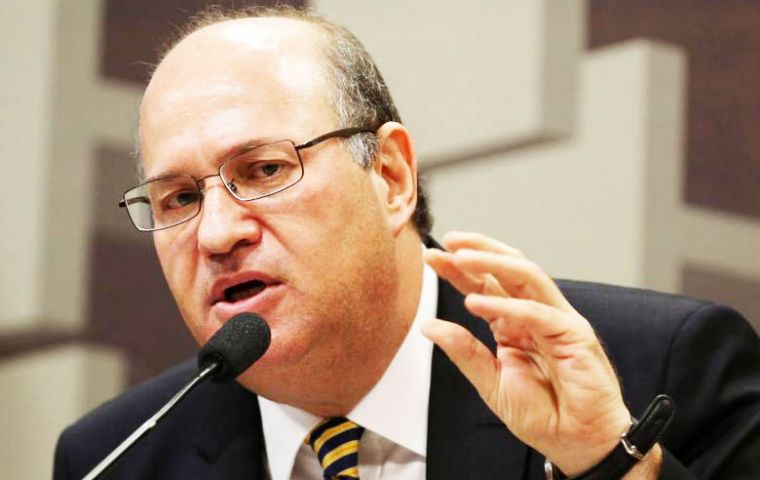MercoPress. South Atlantic News Agency
Brazil admits Trump policies could cause a flow out of capital from emerging economies
 “The risk posed by this scenario is that capital may be caused flow out of, rather than into, emerging economies,” Ilan Goldfajn said
“The risk posed by this scenario is that capital may be caused flow out of, rather than into, emerging economies,” Ilan Goldfajn said Brazil's Central Bank (BC) President Ilan Goldfajn said on Monday that the outcome of the US presidential election, won by magnate Donald Trump, brought an element of uncertainty to markets, but reiterated that the institution has kept a close watch on the development of international markets and worked to prevent the effects of “external shocks” from threatening macroeconomic stability.
“It's still early to have a clearer idea on the directions the US economic policy is to take under the new administration. The new landscape has pressured international interest rates, making loans more expensive for emerging countries, and strengthening the dollar. The risk posed by this scenario is that capital may be caused flow out of, rather than into, emerging economies,” Ilan Goldfajn said during a presentation held as part of a seminar dubbed Reassessing Brazil Risk, at the Getulio Vargas foundation, in Rio de Janeiro.
Goldfajn reiterated that the institution is well prepared to tackle adverse conditions. “We have tools at our disposal; we're headed in the right direction to strengthen our foundations, and we have a solid economic policy framework,” he added.
In the view of BC Economic Policy Director Carlos Viana de Carvalho, it stands to reason that the shift in the US presidency should bring about a “more challenging environment” for emerging economies in the form of higher interest and depreciated exchange rates.
“Our markets responded with rather abrupt dynamics. In a regime marked by fluctuating exchange rates, our job is to act whenever we spot signs of malfunction. It's what we did in the days following the election in the US. The move seems to have normalized the way the exchange market operates,” Carvalho argued.
In the days after Trump's victory, the dollar hiked in the Brazilian market. One of the reasons is that the Federal Reserve may raise interest more than what had been expected, due to Trump's high-spending policy, which proves attractive to investors interested in US treasury bonds, pulling the dollar up and harming emerging economies, like Brazil




Top Comments
Disclaimer & comment rulesCommenting for this story is now closed.
If you have a Facebook account, become a fan and comment on our Facebook Page!